For the longest, I have been the oddball in the room. I was a very vocal, inquisitive girl in a very conservative society. Oh, and I was good at science, math, and all the things that girls are usually not encouraged at. I went into business and the world of technology. I am always one of the few women in the room or even in the company. There were plenty of spaces where I was alone. The more I reflected, the more unjust, and challenging the world seemed to me but I didn’t have the language about why that was happening or how deep it went. So. Guess what? Reaaaaading time. And since I went to quite a few books, I compiled a list of my favorites. All of them are about science and facts and a good rundown of how much still needs to be done to make the place built for everyone.
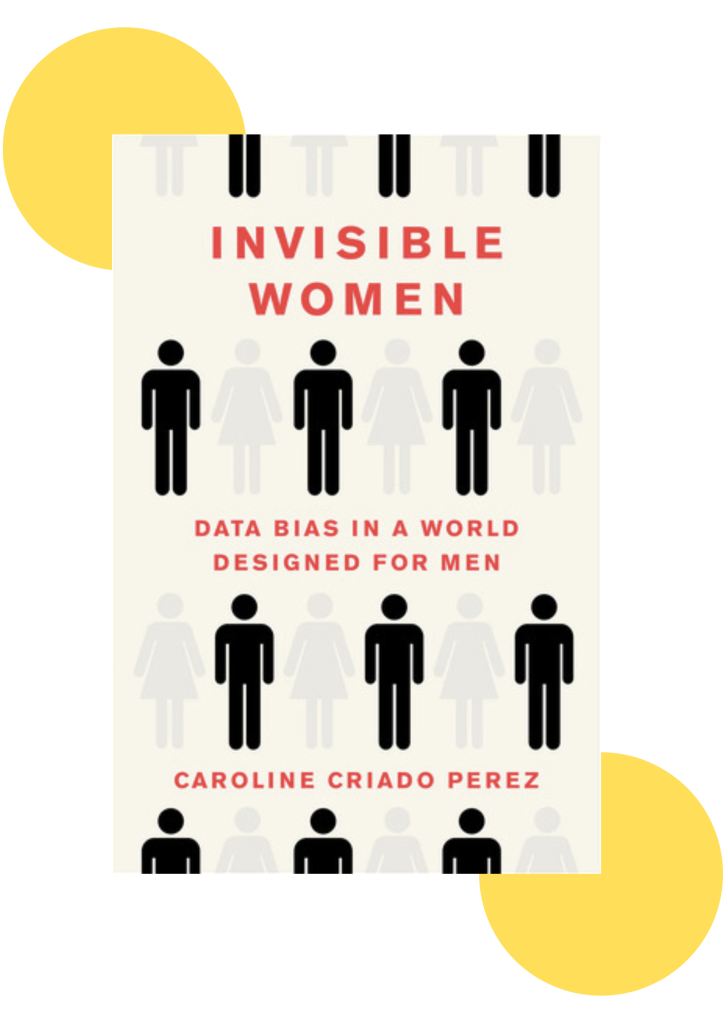
Introduction to everything
Invisible Women is probably one of the first science books that I read around the topic of feminism. I knew that the world wasn’t necessarily the nicest if you were not a white man but I didn’t know how much it was not fit for anyone else. It is a great introduction and rundown across different aspects of life – from education to motherhood to city design to science. While there are books that go in more detail on each topic – there are few on this list – Invisible Women is a great source for brief summaries on each topic.
What I appreciated the most about the book is the science behind it. It is really based on and backed up by a number of studies and proof points to showcase the level of injustice. Who could have thought that if you test women contraceptives you test that with men?
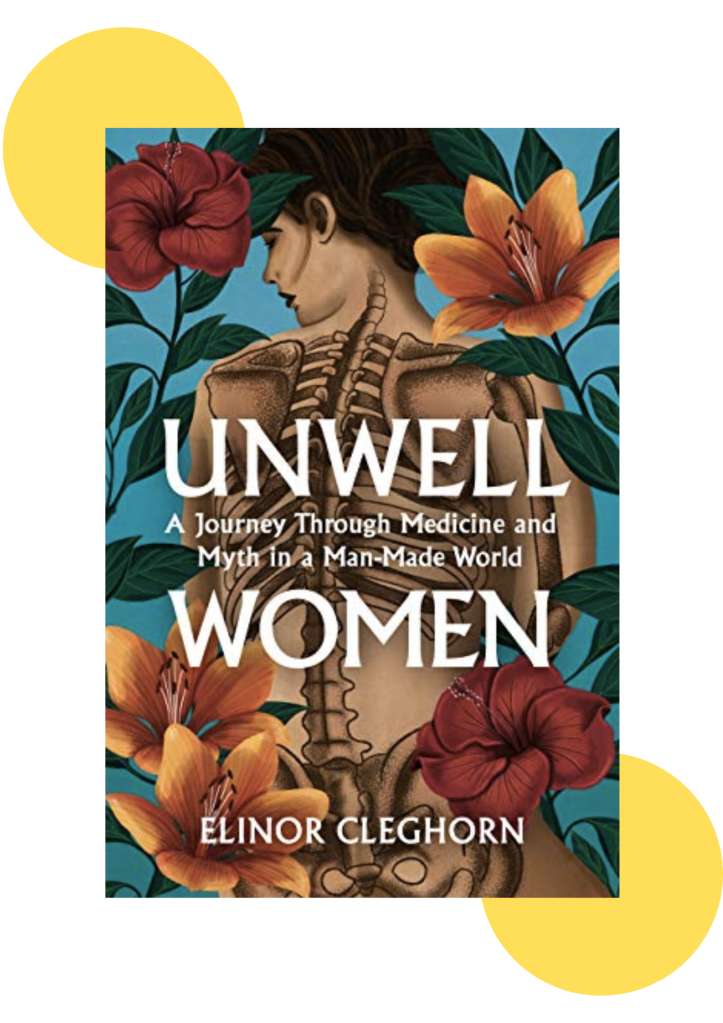
Medicine that is not for you
I picked up Unwell Women completely by accident. Or rather my husband – what a great man, I have to say – pick this one for me. And you know what? I was infuriated. Yes, when cities are not design for you or people don’t take you seriously enough, it is annoying. But at least, that’s not life threatening. This book tells the story how medicine and science completely dismiss and ignore women either as patients or as doctors. All of this nonsense of women’s ability to think or feel dependence on vagina is a fiction to created by men for men. So, that they have full control over women’s bodies, feelings and life. They chose to excluded women from medicine for the longest, because you can’t trust our feeble minds. They chose to link absolutely every single disease to vagina and ovaries for 2000 years. They choose to link mood swings, opinions, stubbornness to vagina and diseases caused by it. They choose to silence women and ignore our complaints, because we are not reasonable, because we have vaginas. Oh, if that was not enough, we believe them! We don’t take our pain seriously, we don’t fight to be acknowledged and accept when doctors (who are still largely male) dismiss our pain or illnesses either because we are too emotional and exaggerate it (FFS, you created that stereotype!) or because men don’t suffer the same (no shit, Sherlock; maybe our bodies are a tad different?).
As you can tell, I am still just a tiny bit annoyed. Nonetheless, it is a good educational piece on women relationship with medicine; a good reminder of the fight that still needs to happen and where we are today.
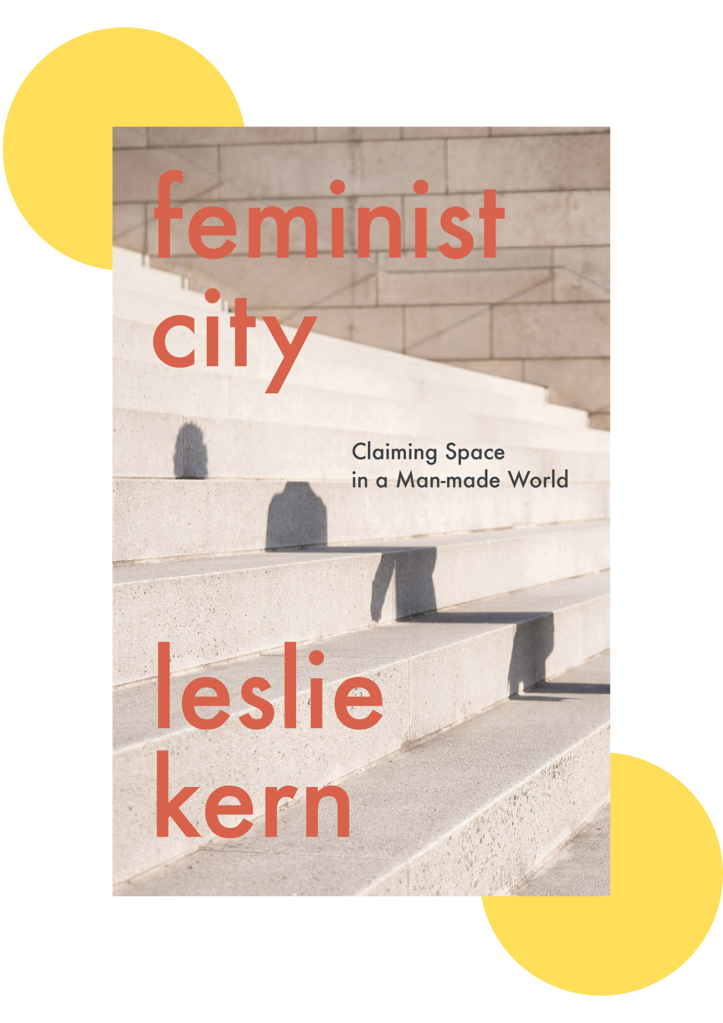
Cities that are not for you
Before reading Feminist City, I thought there is nothing wrong with our cities. I guess this is what happens when you have privilege – you stop noticing things. I don’t have kinds, I have a lovely partner, I don’t have dependents, I live close enough to the city center and so a lot of things go unnoticed. This book was an extremely educational piece and showed me a different side of the story or rather city. It told the story how much community and shared spaces are important when you are a single mother; how the poorer you get, the more difficult it is to get to places. Yes, cities invest in infrastructure but instead of connecting unconnected, they build up infrastructure for the ones already connected. If you are woman in this society, you are expected to care for everyone – your kids, your family, your partners family, your work, your community but that tends to mean that you have to travel a lot but you are the one who doesn’t have a car, or a proper public transport. So, everything just takes extra long, extra money, extra effort. And that’s partly because cities are designed for men by men. They rarely ask or look at women’s needs; councils tend to be highly skewed towards men as well. As I said, very educational, very intersting. I truly learned a lot about the places I visit and how it impacts main and, honestly, mostly less privilleged than I am lives. Strongly recommend that.
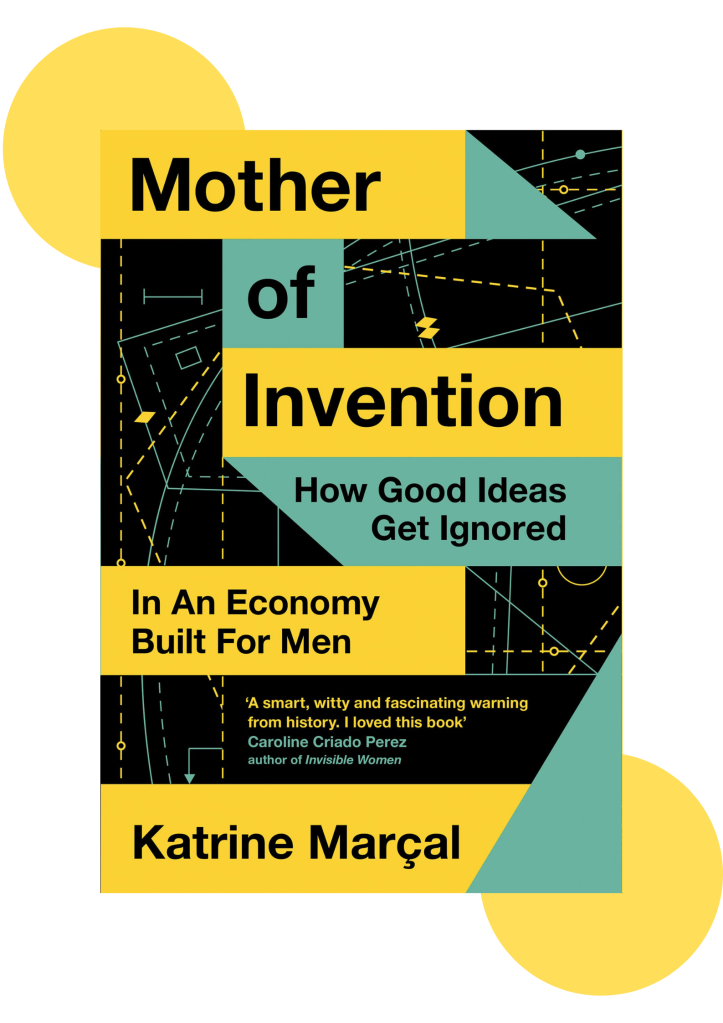
When your inventions are not good enough
Mother of Invention is for science geeks and history buffs. It goes through different inventions who changed our lives and how the had no or very little impact just because they were design by women or for women. It starts with wheels on the luggage to electric cars back to medicine again.
It was very interesting (and sad) to read how one gender is glorify and another one is completely ignored. It took 20 or 30 years for wheels on luggage to be adopted just because it was associated with feminine and unmanly solution. The same went for electric cars. We praise them today as if they are new but in reality they were designed next to good old gas cars back then. Tho, electric cars were for city trips, easy of usage and, of course, women. It was soooo much better to die or nearly lose yours fingers when trying to restart “manly” cars. Women focused ventures, innovations – none of it gets enough attention just because female market is believed to be less of a market.
Being a woman in technology, it’s very interesting to read and a bit depressing. In a way, it shows that anything I do, anything other women create will have less value just because it’s associated to the wrong gender.
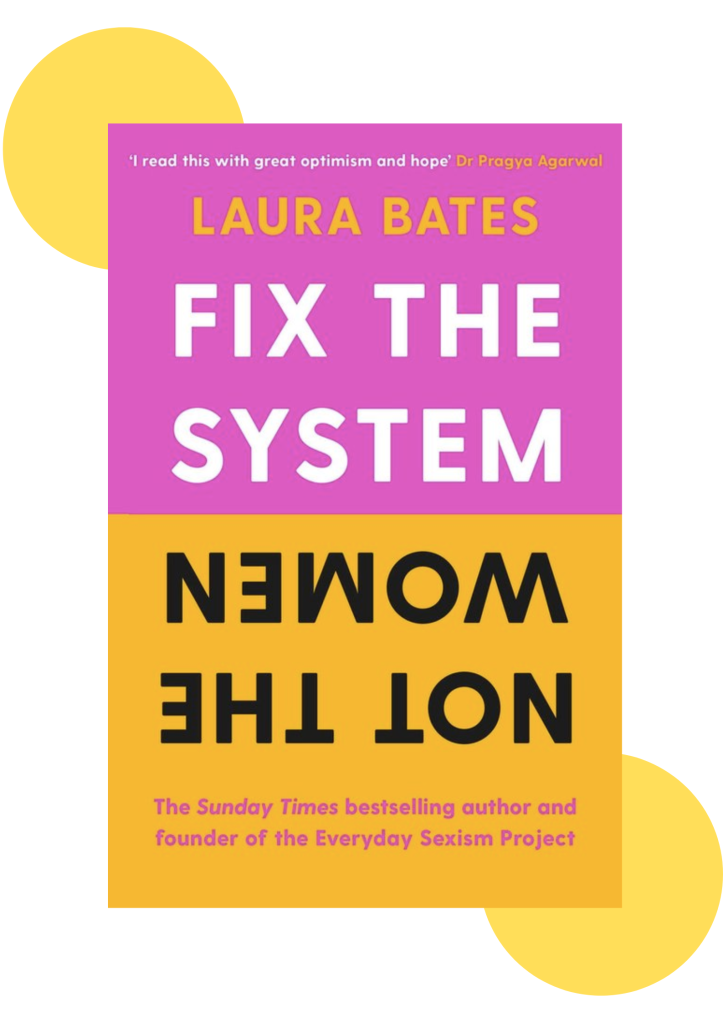
Systemic sexism at its best
Instead of going for big topics – pay gap, unpaid labor, representation in key roles, or hiring processes – Fix The System, Not The Women starts from everyday sexism which once in a while you forget or overlook. It made me stop and look at my behavior that I ignore because I am so used to them. Every time we assume that scientist / businessman / politician / anyone remotely important is a man, every time we refer to ourselves as drama queens / overly sensitive / emotional when we are actually just expressing your emotions, every time we justify with “boys will be boys”, every time we are worried that we look too sexy / ambitious, every time we choose not walk through parks, dark alleys or avoid men at night, we give in to the expectations and norms that were passed down through generations and that are aimed to make women smaller. We take away any responsibility from men and put the pressure on women to fight for their dear lives. I still make myself smaller, I still want to be the best wife possible which means cooking, cleaning and I feel guilty if I am not contributing enough to home care because I am working too hard. It made me stop and think (yet again) how freaking ridiculous it is and how systemic it is. And, sadly, I am part of the system.
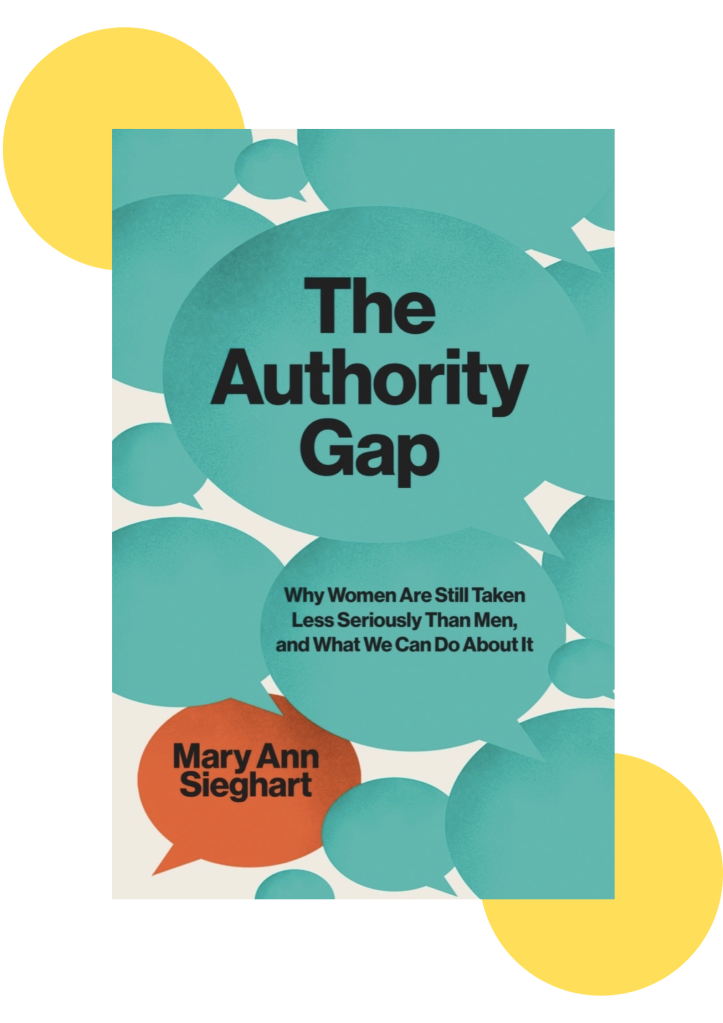
And your voice is rarely enough
And The Authority Gap is about women in power and all the battles and hoops they have to jump through to be equally accepted or acknowledge. You have to be cold but not too cold. You need to be empathetic but also claim your space while respecting everyone else while showing your dominance. It’s like a minefield that every women has to go through on a daily basis. And then people (or mostly men) are surprised why women leave workforce, why they don’t climb the ladder. I think they forget how exhausting it is. You need to jump everyday at work, you need to care for everyone around you and no one is taking you seriously. Sometimes it’s just easier to choose average job, average day and bring a bit more calm to your day.
I used to be sure that I wanted to go up, up and away, that I wanted to be The Boss. By now, I have been working for nearly 10 years. I have enough exhausting moments for a lifetime. I don’t know how much fight I have in me. I don’t know if I can do that for a lifetime. As you can tell, this book maybe me to reflect on my experience quite a bit and appreciate every woman who is at the top even more. I knew their lives were difficult, I didn’t fully realise how difficult, tho.
And here you have it. Six books to read and six opportunities to learn just a bit more of the life of a woman. VERY big caveat there, most of the books were written by rather privileged women, all of them being white. So, there are even more challenges when you take intersectionality of oppression but if it’s about the beginnings of education, it is a good place to start as any. By the way, for the bookworm in me, any other recommendations are always welcome 🙂

